LINK!!!!Analysts challenge Mbeki over free and fair election forecast
Constantine Chimakure
ZIMBABWE cannot have free and fair polls next year if there are no radical political and electoral reforms in line with Sadc election guidelines, analysts said this week.
The analysts argued that last week’s pronouncement by South African President Thabo Mbeki that Zimbabwe would have free and fair polls ignored the political situation on the ground where the ruling Zanu PF has an upperhand against the opposition.
Zanu PF has unfettered access to state resources and public media for a glitzy campaign, while the majority of the opposition survives on shoe-string budgets.
Mbeki told his parliament that he was assured by the Zimbabwean leadership, civil society and non-governmental organisations of a free and fair poll.
"Now I believe the Zimbabweans about their own country," Mbeki said.
Mbeki was appointed by Sadc in March to mediate between Zanu PF and the main opposition MDC in a bid to find a solution to Zimbabwe’s political and economic crisis.
In his report to Sadc heads of state and government in Lusaka, last month, Mbeki said there was progress in his mediation efforts and that he was optimistic of a pact between Zanu PF and the MDC in the near future.
However, political analysts said it was day dreaming for Mbeki that there would be free and fair polls next year.
"President Mbeki’s pronouncement was off the mark," said David Chimhini, executive director of the Zimbabwe Civic Education Trust.
"We cannot have free and fair elections when we have failed to adopt the Sadc election guidelines of which we are a signatory."
Chimhini argued that there was need to level the playing field, which is currently tilted in favour of Zanu PF.
"We have to start from the basics — the electoral process. We are already gearing for the elections, but there is insufficient voter education. Next year’s election results have already been predetermined with Zanu PF insisting that it will have to win at all costs. How then can one say the polls will be free and fair?" questioned Chimhini.
He said reports from rural areas throughout the country were that Zanu PF has since politicised food relief using traditional leaders.
"Chiefs were recently in Victoria Falls and they pledged their support for President Robert Mugabe. These are opinion leaders in rural communities and are charged with the responsibility of distributing food. Obviously, food will be given to those who support the ruling party and, likewise, they will be expected to vote with their stomach," Chimhini added.
Political scientist Michael Mhike said Mbeki’s pronouncement was ill-timed since Zanu PF and the MDC were still engaged in negotiations.
He argued that the outcome of the negotiations should be the barometer of whether or not Zimbabwe would have free and fair polls.
"It was wrong for Mbeki to suggest that next year’s polls would be free and fair when the main parties are still in negotiations. We have to await the outcome of the negotiations to see if we can have free elections," Mhike said.
However, he added that the course of the talks was heading nowhere given what Zanu PF chief negotiator, Justice minister Patrick Chinamasa, said at the sidelines of the Sadc summit in Lusaka.
"Chinamasa told the whole world that there was no need for the current talks because Zimbabwe is a democracy. From his statement, one can be excused for drawing the conclusion that the government wants the status quo to remain and that means there will not be free and fair polls," Mhike said.
In Lusaka, Chinamasa ruled out political reforms in the country.
"Political reform is not necessary in my country because we are a democracy like any other democracy in the world," he said.
He also suggested that the talks were irrelevant.
Chimhini said from a Zanu PF perspective, Chinamasa was partially correct to suggest that the talks were of no consequence to the ruling party.
"It is the MDC and the people of Zimbabwe who need the talks more than Mugabe and Zanu PF," Chimhini said.
"Zanu PF cannot negotiate itself out of power and that is why it continues to sell the ruse that MDC is Western-funded and has called for the imposition of sanctions."
Pro-Zanu PF analysts argued that the recent visit to Australia by leader of the other formation of the MDC, Morgan Tsvangirai, was meant to cajole Canberra to tighten sanctions on Zimbabwe.
Further, they argued that Tsvangirai’s visit compromised the Mbeki-mediated talks.
Tsvangirai met Australia Prime Minister John Howard and Foreign minister Alexander Downer.
Speaking at the Australian Institute of International Affairs’ Victorian branch in Melbourne, Tsvangirai hailed Canberra for doing more than any other country to force Mugabe out of power.
"Australia, I think, has moved far ahead of other countries in ensuring that at least pressure is applied through multilateral interventions, than any other country so far," Tsvangirai said. "So in my communication to him (Downer) I am going to congratulate Australia …there are many measures that have been taken by Australia that I admire and that I think are on the right path."
Tsvangirai said he was supportive of Australia’s intentions to revoke visas and deport children of ministers and government officials studying in that country.
He also supported the Australian government’s decision to ban its national cricket team from visiting Zimbabwe this month.
In response to Tsvangirai’s utterances in Australia, the permanent secretary in the Ministry of Information, George Charamba, said the MDC leader had sacrificed ongoing negotiations under "the aegis of President Mbeki by patronising white Australia".
He said keeping foreigners out and respecting Zimbabwe’s sovereignty was a clearly "spell out precondition" for talks from Mbeki to the MDC.
Other conditions set by Mbeki include that the negotiations should not be through the media and that there should be no calling for sanctions because they were hurting the economy and ordinary Zimbabweans.
At a Sadc extraordinary meeting in March in Tanzania, the regional bloc condemned economic sanctions against Zimbabwe and foreign interference in the country’s affairs.
Sadc reiterated this position at the Lusaka summit last month.
What exactly is the way forward in Zimbabwe?? Please Zimbos lets discuss! hosted by zimfinalpush.
Chat about what's on your mind. More about public chats.
|
MP3 music download website, eMusic

| Click here to unsubscribe | Privacy Policy | Terms of Use |
© 2006 eMusic.com, Inc. All rights reserved. iPod® is a registered trademark of Apple Computer, Inc. Apple is not a partner or sponsor of eMusic.com, Inc. |
|

Powered byIP2Location.com
NB: THIS IS NOT THE HOME PAGE!!!1
1
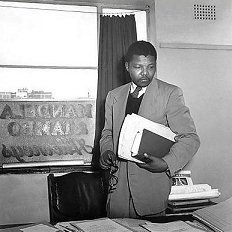
Mandela as young attorney in his office at Tambo & Mandela, 1952 to 1956.
2
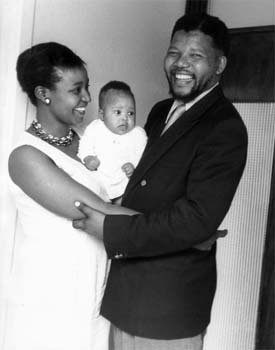
Mandela and his second wife, Winnie Madikizela-Mandela, and their daughter Zinzi. Married 1958 to 1996.
3
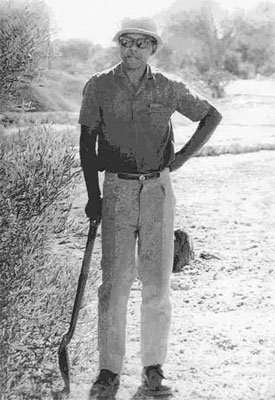
Mandela working in the prison garden..............
4
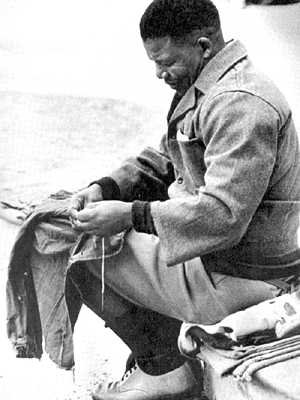
.....................and doing his sewing during his 18 years on Robben Island. 1964 to 1982
5
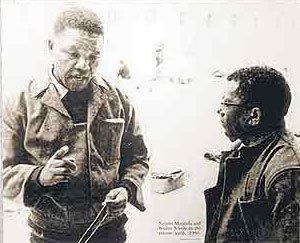
Mandela and Walter Sisulu on Robben Island, late 1964
6
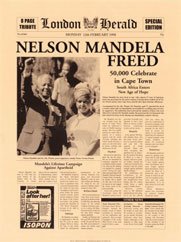
Nelson Mandela released on 11 February 1990 after spending 27 years in prison.
7
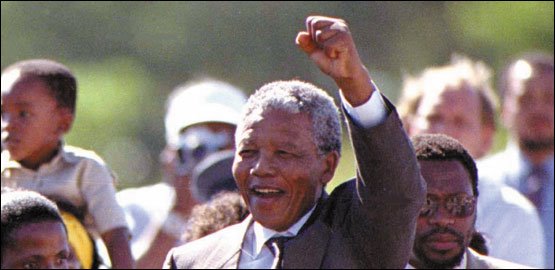
..................................same as no 6.................
8
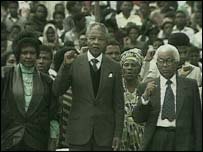
Mandela being greeted by Winnie and Walter Sisulu after his release from prison in 1990.
9
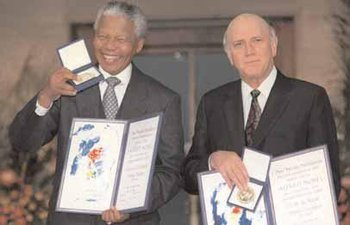
Mandela and FW de Klerk receiving the Nobel Peace Prize jointly in 1993.
10
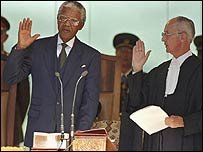
Mandela being sworn in as president on 10 May 1994.
11
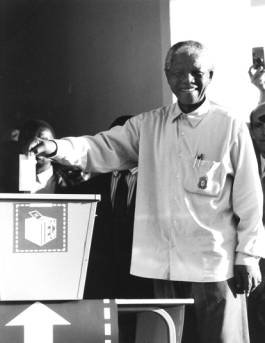
Mandela casting his vote in the first democratic elections in 1994
12
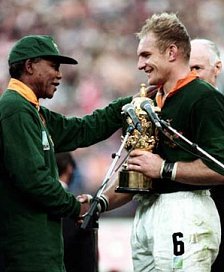
Mandela congratulating Francois Pienaar at the 1995 Rugby World Cup.
13
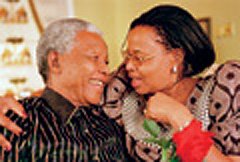
Mandela and his wife, Graca Machel, married on his 80th birthday in 1998.
14
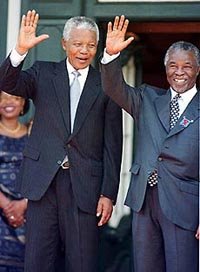
Mandela with Thabo Mbeki who succeeded him as president in 1999. Photo taken at Tuynhuis after Mandela's last address to parliament on 5 February 1999.
About Me

- The Radical Mindset!
- I look for "The truth, the whole truth, and nothing but the truth" at all times.
Blog Archive
Friday, 7 September 2007
Subscribe to:
Post Comments (Atom)






No comments:
Post a Comment